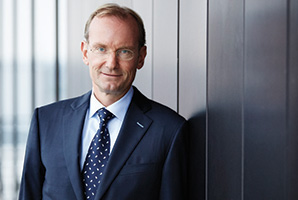Despite this, DFDS is investing heavily in new vessels, including two recently delivered Ro-Ro vessels from a German shipyard and four of the largest ro-ro vessel in the history of the company to be delivered from China from 2019/2020. Part of the reason, Mr. Smedegaard explains, is that the 30-year lifetime of new vessels means that investment decisions have to be based on a long-term view and he believes that Brexit-related economic turbulence is “a big blip on the radar screen”, in other words a short to medium term issue which is perhaps set to last “4 years or so.” Further, he points out that the increased efficiencies and reduced unit costs offered by larger vessels improve competitiveness and consequently creates the potential to grow even in a flat market.
Mr. Smedegaard welcomed the initiative that ABP has taken to reach out to other European ports who share a commitment to make sure trade between the UK and mainland Europe can continue to grow. ABP has already reached agreements with the ports of Zeebrugge and Esbjerg to promote trade links and enable ports to keep trade flowing as smoothly as possible after the UK’s departure from the Customs Union and many more agreements with other ports are in the pipeline. Such co-operation Mr. Smedegaard believes can also help “stop politicians making foolish decisions.”


